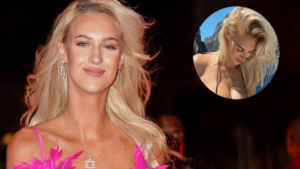[ad_1]
Author Ben Shapiro is expressing doubt over whether or not Supreme Court Justices Brett Kavanaugh and Amy Coney Barrett will reside as much as conservatives’ expectations – echoing considerations which have arisen since current selections.
“So far, we have seen little from either Barrett or Kavanaugh to justify conservatives’ high hopes for them,” Shapiro instructed Fox News.
“To be sure, they haven’t engaged in David Souter-type liberal rulings, or Anthony Kennedy-style vacillation. But they have been markedly unambitious in their judicial approaches, most obviously in Fulton, which should have presented a clear opportunity to overrule Employment Division v. Smith, and in their unwillingness to accept the Barronelle Stutzman case.”
His feedback had been referring to 2 high-profile circumstances – Ingersoll & Freed v. Arlene’s Flowers Inc. and Fulton v. City of Philadelphia – which were intently watched by conservatives. Each touched on the battle between spiritual liberty and the pursuits of same-sex {couples} whereas additionally offering alternatives for the court docket to ship decisive wins to conservatives.
SUPREME COURT ENDS TERM WITH A ‘HIGHLY ANTICIPATED’ DECISION
Like Shapiro, others within the media have indicated that Kavanaugh and Barrett – each contentious nominees of former President Donald Trump – had been shying away from controversy of their judicial opinions. But a number of the boldest criticism appeared to come back from different conservative justices – particularly Clarence Thomas, Samuel Alito and fellow Trump appointee Neil Gorsuch.
In a current op-ed for Newsweek, regulation professor Josh Blackman pointed to numerous opinions wherein these three appeared to counsel Kavanaugh and Barrett shaped majorities that lacked the “fortitude” acceptable for dealing with main circumstances. That was the wording Gorsuch utilized in arguing the court docket ought to have gone additional in Fulton.
Although the case was a partial victory for conservatives, it wasn’t the win that they had hoped for. For years, conservatives have been arguing for a removing of the precedent set by Justice Antonin Scalia in Employment Division v. Smith. Scalia, Barrett’s mentor, dominated in that case that impartial legal guidelines with common applicability did not violate the First Amendment’s free train clause.
Rather than overturning Smith, Chief Justice John Roberts and Kavanaugh, who clerked for the longtime swing-vote Justice Anthony Kennedy, joined Barrett and others in a narrower choice. In separate, concurring opinion joined by Kavanaugh and Justice Stephen Breyer, Barrett criticized Smith however expressed considerations about changing it with one other commonplace. “We need not wrestle with these questions in this case, though, because the same standard applies regardless whether Smith stays or goes,” she mentioned.
AS SCOTUS NEARS END OF TERM, UNPREDICTABLE DECISIONS CONTRADICT DEMS’ WARNINGS
Gorsuch’s opinion, which Thomas and Alito joined, advised the bulk was “dodging the question” of Smith. It added: “These cases will keep coming until the court musters the fortitude to supply an answer. Respectfully, it should have done so today.”
Alito, in an opinion joined by Gorsuch and Thomas, equally argued that the court docket took an “easy out” in declining to listen to an extreme use of pressure case (Lombardo v. City of St. Louis). It’s unclear how Barrett and Kavanaugh voted in that case, however circumstances usually want simply 4 votes from the court docket to grant certiorari. Therefore, the three dissenters would have presumably solely wanted one of many different justices to vote in favor of listening to the case. The similar was true for the Stutzman case (Arlene Flowers), which Gorsuch, Alito and Thomas had been in favor of the court docket listening to.
In comparability to their conservative colleagues, Barrett and Kavanaugh equally supplied a extra restrained assist for a church searching for to dam California’s coronavirus-related restrictions. Whereas Gorsuch and Thomas would have granted the complete injunction requested, Barrett and Kavanaugh mentioned the church failed to point out why the court docket ought to block a ban on chanting or singing. Many have famous that in doing so, Barrett used her first written opinion to successfully oppose folks of religion.
Implications for Roe and Mississippi’s abortion regulation
Divides like these have led some to take a position the court docket really has a 3-3-3 ideological composition somewhat than the 6-3 conservative majority others have advised. This might show detrimental to a centerpiece of the conservative authorized motion: overturning Roe v. Wade.
“The cases mentioned in the Newsweek piece provide early evidence that at best, Barrett and Kavanaugh are incrementalists rather than change agents,” Shapiro instructed Fox News. “Conservatives can only hope that that assessment turns out to be incorrect.”
DEMOCRATS RENEW COURT PACKING CALLS, BLAST THE SUPREME COURT’S FINAL TWO DECISIONS OF TERM
For years, conservatives have fought to nominate justices who might lastly undo what they see as a decades-old, unconstitutional precedent allowing abortion. Hopes remained excessive when information surfaced final month that the court docket had determined to take up a 15-week abortion ban from Mississippi.
“This is it,” mentioned Abby Johnson, a former Planned Parenthood director who spoke on the Republican National Convention final 12 months. She added that “this is what we have been waiting for for decades.”
Live Action’s Lila Rose equally tweeted: “Goodbye and good riddance, Roe v Wade,” including “It’s a matter of time. Roe v Wade is a nonsensical decision with murky legal precedent that is constantly shifting because it has no constitutional basis.”
SUPREME COURT AGREES TO HEAR CHALLENGE TO MISSISSIPPI ABORTION LAW
Kavanaugh, and notably Barrett, have lengthy been considered by either side as essential to weakening Roe. Barrett, particularly, was seen this manner after numerous statements and positions she took on abortion.
For instance, she wrote in a 2013 article that “public response to controversial cases like Roe reflects public rejection of the proposition that [precedent] can declare a permanent victor in a divisive constitutional struggle rather than desire that the precedent remain forever unchanging.”
“Court watchers embrace the possibility of overruling, even if they may want it to be the exception rather than the rule,” she wrote.
As a decide, she additionally voted in favor of a parental notification regulation and indicated assist for different abortion restrictions. However, she additionally mentioned she did not assume “the right to abortion would change,” solely state flexibility in regulating it.
And newer selections, like Fulton, have indicated she and Kavanaugh might observe the incrementalist path typically carved out by Roberts. In doing so, they may keep away from the complete repeal of Roe that many conservatives search.
Before Barrett joined the court docket, Thomas, Alito and Gorsuch appeared to swipe at Kavanaugh and the others for refusing to take up a case involving Planned Parenthood’s supplier settlement with Medicaid. As in Lombardo, it is unclear how the justices voted however the common four-vote requirement means that Kavanaugh joined the others in refusing to take up the case.
CLICK HERE TO GET THE FOX NEWS APP
Writing in opposition, Thomas alleged that the court docket had refused to do its job as a result of the case concerned Planned Parenthood. He went on to quote Federalist No. 78, admonishing the consideration of “popularity” in court docket selections.
Kavanaugh, nevertheless, partially joined the dissent opposing Roberts’ and the liberal justices’ choice to strike down Louisiana’s abortion clinic rules.
[ad_2]
Source hyperlink















